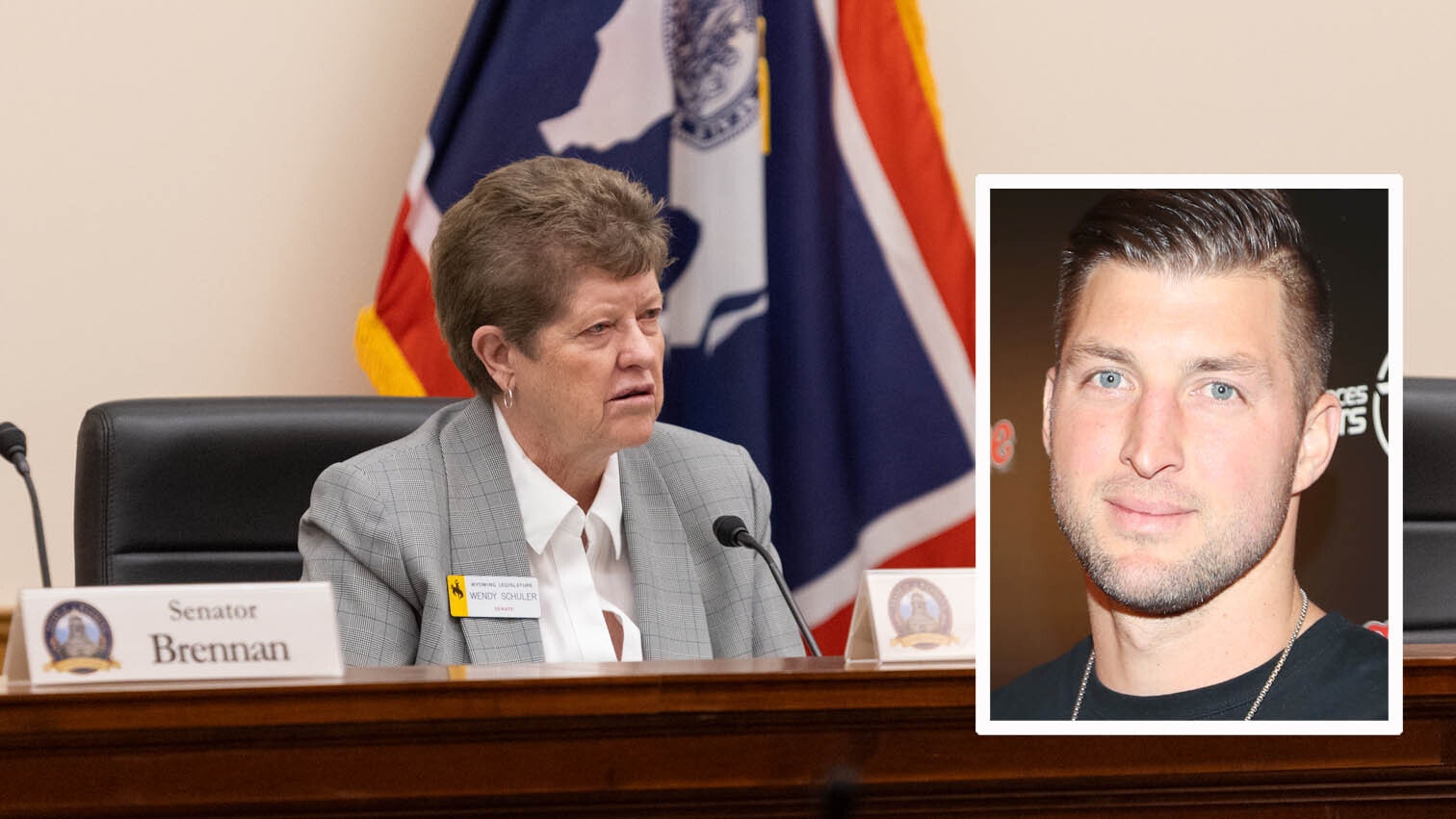While around 100 Wyoming attorneys and judges are concerned about President Donald Trump’s administration targeting America’s judicial branch, Wyoming’s congressional delegation has a different concern.
Earlier this month, the jurists called on the delegation to defend those judges and “American rule of law” from verbal attacks by Trump and Elon Musk.
In a Thursday op-ed, U.S. Sen. Cynthia Lummis, R-Wyoming, says people should be more concerned about unelected judges making biased political decisions that skew the law rather than Trump going after these judges.
Lummis believes certain judges have “imposed a number of ill-advised and incomprehensible nationwide injunctions” to block Trump’s agenda.
Those actions are politically motivated and deserve to be called out, she says.
Executive vs. Judicial
In less than 90 days in office, federal courts have filed 15 nationwide injunctions against the Trump administration. The New York Post recently reported that former President Joe Biden was the target of 14 national injunctions throughout his entire presidency.
“When Democrats fail at the ballot box, they turn to the courts to accomplish their goals,” Lummis writes. “They used the Justice Department to go after President Trump during the last four years — and they are now using unelected federal judges to block what they can’t stop in the executive or legislative branch.”
Lummis pointed out that Trump won the 2024 election by a healthy margin, was the first Republican to win the popular vote in the last 20 years and holds a majority in the Senate and the House.
Although the people voted for Trump, they didn’t vote for the judges, who are appointed by sitting presidents.
“Most citizens of Wyoming have never heard of these judges, yet every one seems to have more power and control over our government than the elected President of the United States,” Lummis writes.
That One Deportation
Trump invoked the wartime 1798 Alien Enemies Act to deport immigrants to El Salvador. Another federal judge who had ordered three flights to El Salvador be turned around found Wednesday that there was probable cause to hold the Trump administration in criminal contempt for defying his orders.
Catching some of the most attention is the case of Kilmar Abrego Garcia, an El Salvador national who entered America illegally and had been in the U.S. since 2011. At the time of his deportation he was living in Maryland.
The Department of Homeland Security says Garcia is a member of the MS-13 gang and provided documents Wednesday showing Garcia’s wife sought a domestic violence restraining order against him in 2021.
On Thursday, the woman confirmed this happened, but still stood by her husband.
The Trump administration has admitted it made an "administrative error" that led to Abrego Garcia's deportation March 15. However, that doesn’t change that he was originally in the country illegally anyway, the administration says, and it has refused to return him to the country.
At the same time, the U.S. Supreme Court is upholding a lower court decision that the administration is required to get him returned to the United States.
What About The Threats?
Lummis — along with Wyoming’s other Republican delegation members, U.S. Sen. John Barrasso and Rep. Harriett Hageman — rest their argument on an opinion that these judges aren’t following the law, which they say justifies the Trump administration not following the judicial orders.
Trump has called for impeaching specific judges who ruled against his policies, and Musk called a judge’s ruling an “attempted coup,” among other remarks.
The delegation’s response letter sent last week makes no direct mention of Trump, Musk or threats of violence against judges, but says “the country is witnessing a healthy debate right now about the appropriate role of judges.”
The original letter sent to the delegation specifically cited concerns about the administration not following the rule of law and threats of violence being made against judges, the latter a trend U.S. Supreme Court Chief Justice John Roberts recently acknowledged is on the rise.
Susan Stubson, one of the letter’s signers, wrote in an op-ed earlier this month that this was a key point of their letter, pointing out that judges aren’t supposed to defend themselves publicly or go on the attack against their detractors.
“Are there bad judges? No question,” Stubson writes. “But the way to get rid of them is not to inflame the electorate with evidence-free claims and make threats to judges’ personal safety. There are mechanisms already in place to weed out rogues from within: committees comprised of citizens, judges and attorneys, those who stand to lose the most when one of judiciary violates its code of conduct.”
Direct Solutions
Lummis brought up U.S. District Court Judge James Boasberg’s order to stop sending planes full of alleged Tren de Aragua gang members back to Venezuela, a different federal judge blocking the firing of probationary federal workers, and another judge ordering the administration to restore taxpayer funding for legal services for noncitizens.
“I believe that most citizens of Wyoming would agree that a single federal district judge should not have the power to issue a nationwide injunction with broad implications,” Lummis writes.
Lummis believes it’s Congress’ job to reign in the lower federal courts and to reconsider their powers, specifically their ability to issue nationwide injunctions that extend beyond individual cases.
She recently introduced legislation with Barrasso that would limit federal court orders to parties directly before a court, essentially ending the practice of nationwide injunctions.
“We must remember that judges are not policymakers — and they have not been elected by the American people to legislate,” Lummis writes.
Leo Wolfson can be reached at leo@cowboystatedaily.com.





